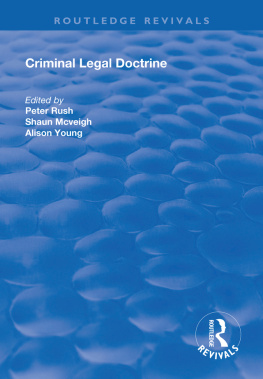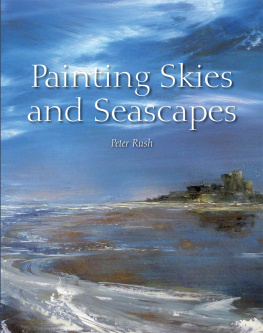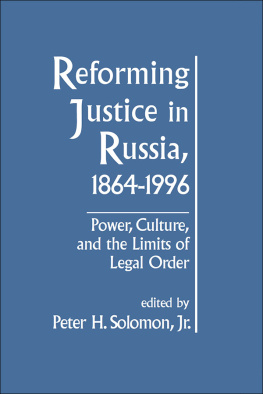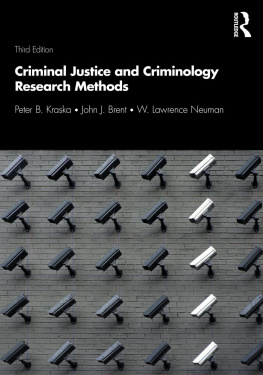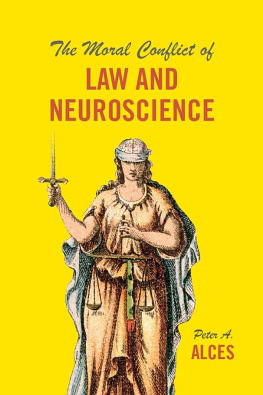Criminal Legal Doctrine
Edited by
Peter Rush
Shaun McVeigh
Alison Young
First published 1997 by Dartmouth and Ashgate Publishing
Reissued 2018 by Routledge
2 Park Square, Milton Park, Abingdon, Oxon, OX14 4RN
711 Third Avenue, New York, NY 10017, USA
Routledge is an imprint of the Taylor & Francis Group, an informa business
Copyright Peter Rush, Shaun McVeigh and Alison Young 1997
All rights reserved. No part of this book may be reprinted or reproduced or utilised in any form or by any electronic, mechanical, or other means, now known or hereafter invented, including photocopying and recording, or in any information storage or retrieval system, without permission in writing from the publishers.
Notice:
Product or corporate names may be trademarks or registered trademarks, and are used only for identification and explanation without intent to infringe.
Publisher's Note
The publisher has gone to great lengths to ensure the quality of this reprint but points out that some imperfections in the original copies may be apparent.
Disclaimer
The publisher has made every effort to trace copyright holders and welcomes correspondence from those they have been unable to contact.
A Library of Congress record exists under LC control number: 97019615
ISBN 13: 978-1-138-33142-6 (hbk)
ISBN 13: 978-1-138-33144-0 (pbk)
ISBN 13: 978-0-429-44730-3 (ebk)
Lindsay Farmer is a Lecturer in the Department of Law, Birkbeck College, England. He is the author of a monograph on criminal law and tradition (Cambridge University Press, 1996) as well as articles on the jurisprudence of criminal law. His current research is on the history of codification.
Yifat Hachamovitch has taught at several universities in the United States. Her published work includes articles on philosophy and legal theory, and she is a co-editor of Politics, Postmodernity and Critical Legal Studies (Routledge, 1994), She is currently completing a book on psychoanalysis and the law.
Piyel Haidar is a Lecturer in the Department of Law, Birkbeck College, University of London. He is the author of articles on the aesthetics of law, legal history and legal theory, as well as a forthcoming monograph on evidence and the semiosis of the legal institution.
Gerry Johnstone is a Lecturer in the Department of Law, University of Hull, England. He is the author of Medical Concepts and Penal Policy (Cavendish, 1996) as well as articles on the therapeutic interventions of criminal justice. His current research interest is in social control and popular justice.
Shaun McVeigh is a Senior Lecturer in the Faculty of Law, Griffith University, Brisbane. He is the co-author of Postmodern Jurisprudence (Routledge, 1991), co-editor of Law, Health and Medical Regulation (Dartmouth, 1992), and is currently working on issues of medico-legal ethics.
Leslie J. Moran is a Senior Lecturer in the Department of Law, University of Lancaster, England. His published work includes articles on company law and gay legal politics. He is the author of The Homosexual(ity) of Law (Routledge, 1996) and co-editor of a forthcoming collection on legal perversions.
Alan Norrie is a Professor in Queen Mary and Westfield College, University of London, He is the author of several books on criminal law, the philosophy of punishment and legal theory, including Crime, Reason and History (Weidenfeld & Nicolson, 1993).
Peter Rush is a Senior Lecturer in the School of Law, Deakin University, Australia. He is the author of Beyond the Edge (George Allen & Unwin, 1985), Criminal Law (Butterworths, 1997) and Trials of Sex (Routledge, forthcoming) as well as articles on legal education, legal theory and indigenous law. His current thinking concerns questions of criminal jurisdiction, architecture and aboriginal legal politics.
Alison Young is a Senior Lecturer in the Department of Criminology, University of Melbourne, Australia. She is the author of Femininity in Dissent (Routledge, 1990) and most recently Imagining Crime (Sage, 1995); she has also written numerous articles on the intersections of law and feminist theory. Her current research concerns the reproductive technologies of law, and art as a mode of criminal aesthetics.
PETER RUSH , SHAUN MCVEIGH & ALISON YOUNG
It could be argued that the central concern of criminal law is that it wants and lacks a corpus, a teaching, a subject. One of the most persistent moves of legal thought has been to associate criminal law with the loss of order and the restoration of law. In thinking about this association and its thematics, a useful entry-point is to elaborate the problematic of loss and restoration as a question of the status of doctrine in contemporary legal thought. In general terms, the several essays of this collection address the peculiar and uncanny commonplace that doctrine is the subject of law. Their theme is the various and varied relations between law, doctrine and crime. The problem, as we see it, is that there is a recurrent or structural tendency to collapse or compress each of these instances into a single identity. Law, doctrine, crime: all seemingly occupy the place of the subject of law. At the same time it seems that something has been misplaced, so to speak, in the advent of criminal law It appears that the struggle to place the teachings and arguments of law within a legal order has been lost and with this, the possibility of interrogating the structural site of the enunciation of law, the power and authority to speak in the name of the law. Such is the predicament that is addressed here in a number of different contexts and in a variety of ways.
The essays collected here fall roughly into three parts, corresponding to the general elements of the dogmatic tradition of law: namely, the questioning of address, of institution, of judgment.
Under the question of address, Alan Norrie reconsiders the issue of community in the context of the moral debate over responsibility. Taking the responsibility of and for James Bulger as a starting point for a series of more general reflections on the relations between law and community, Norrie argues that there has been a hardening or sclerosis of the legal narrative of moral responsibility and intentional agency. His essay ends by suggesting possible ways of reformulating the persistence of community within law. On the other hand, Yifat Hachamovitch investigates the places of intention in law, by following the phantasmatic resonances of intention and murder over the longue dure of law. What is recovered in her essay is the address of malice as a doctrinal mode of communication and, in a phenomenological turn, the attachment of that order of fiction to the corporeality of law.
The essays by Lindsay Farmer, Gerry Johnstone and Piyel Haldar are primarily concerned with the questioning of institution. Fanner takes his cue from Blackstone's cartographic metaphor of law, and investigates the forgotten substrate of criminal law in terms of the institution of jurisdiction in both its physical and metaphysical aspects. The elements of this jurisdiction emerge, for Farmer, in the transformation of criminal procedure over the course of the nineteenth century. The institution of criminal law is thus returned to its fundamental adhesion with procedure. Gerry Johnstone's essay also returns to the nineteenth century but this time to reconsider the contemporary relations between penality and psychiatry. These relations involve not only professional and administrative boundaries but also the conceptual representations or rhetorical processes which institute those boundaries. What emerges is a complex of connections and rapprochements between law and psychiatry, but also and just as importantly the mutual misrecognition of both law and psychiatry. By way of this thick description, Johnstone reformulates the possibilities of exchange between criminal law and the psy-disciplines. One context for the essay by Haldar is the relationship of criminal law with medicine and its order of symptomatology. In his investigation of the institutional and adjudicative logics of criminal law, Haldar explores the sacrifices upon which are predicated the various types of criminal legal processes and, specifically, trial by jury and its precursors. Finally, he follows that order of sacrifice as it is thrown within the modem legal forensics of mens rea.


